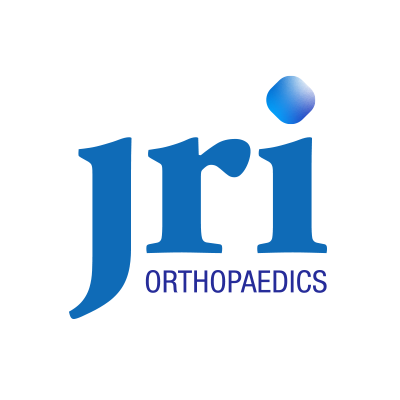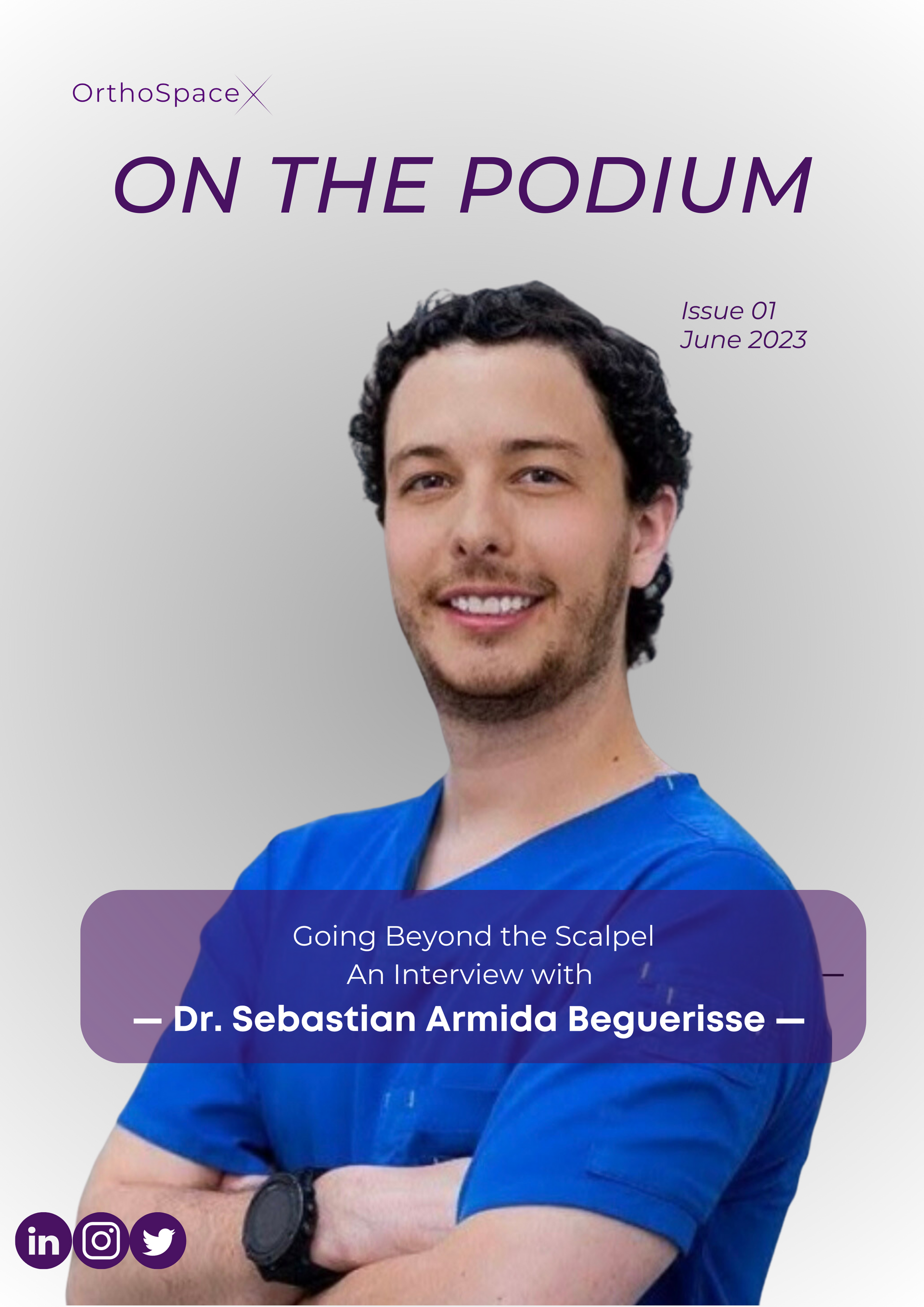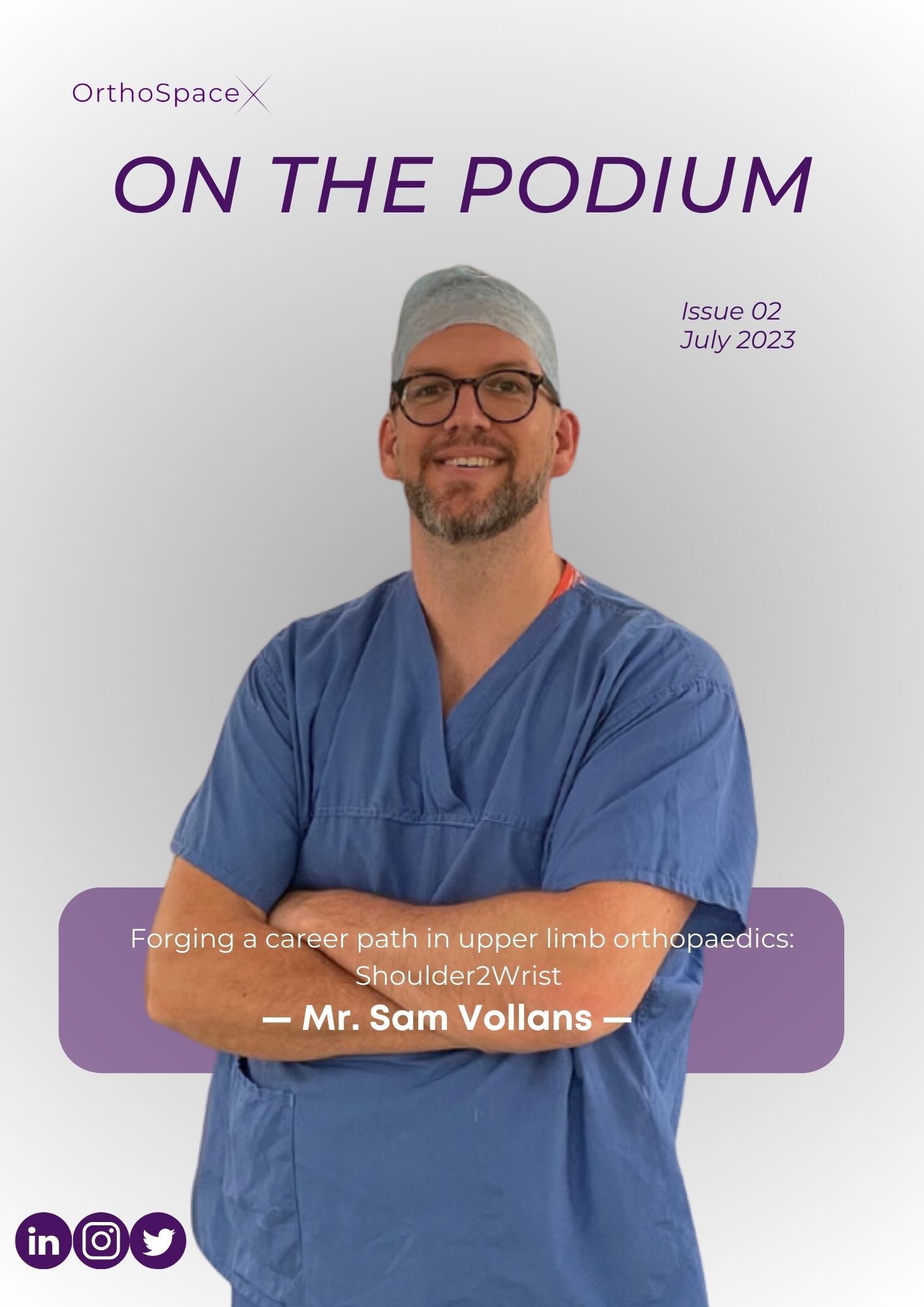Surviving and Thriving: A story of Resilience, Facing Life’s Greatest Challenges, and Transforming Orthopaedic Education.
An interview with:
— Mr. Rishi Dhir —
Issue 10, August 2024

Can you share your journey of becoming an orthopaedic surgeon and what initially inspired you to specialise in this field?
I would probably describe myself as a reluctant surgeon and even doctor. I was the first medic in my family and if anything was leaning more towards the arts but the idea of doing something which combined problem solving, compassion and empathy led me down the medical path. Again, I initially wanted to specialise in neurology and even forensic psychiatry at one point! However, it was my time dealing with orthopaedic problems in my A and E attachments which led me towards the specialty. I really enjoyed the logical aspect of the speciality combined with the hands on practical experience and ability to drastically and rapidly improve a patient's quality of life. Through this initial attraction and working with great mentors in the specialty it led me to a career in orthopaedics and eventually to specialise in upper limb surgery. As someone who loves raquet sports and bouldering and has experienced his fair share of hand, shoulder and elbow injuries, I very quickly fell in love with this speciality and haven't really looked back.
Your training pathway was unconventional. Can you elaborate on what made it different and how it shaped your career?
I would definitely describe my training as unconventional! I was a very keen musician and singer and took a year out of medical school to study popular music vocals and production. I still love music as a way to unwind and sing professionally to this day. I also worked for the European Space Agency as an undergraduate having won three international competitions to launch the first student experiment on the International Space Station and initially pursued a career as an astronaut but at that time, they were not taking on board medics as mission specialists. Finally, I gained alot of experience during the Junior Doctor's Strike in 2016 representing doctors in the media including the BBC, SKY and ITV and this gave me the experience of public speaking and presenting which I really utilised as part of my teaching style later in life. I think all of these diverse experiences, rather than being a distraction have taught me a number of important transferrable skills such as professionalism, working to deadlines, teamworking and also meeting people from different walks of life which have helped me greatly in shaping me as the person and surgeon I am today.
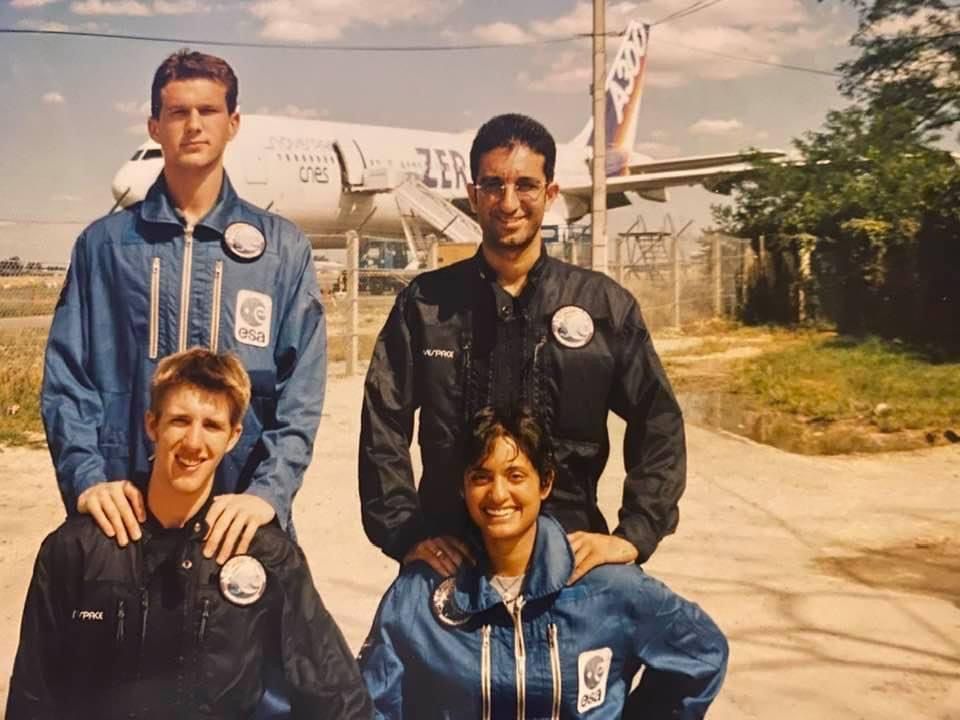
What were some of the biggest challenges you faced during your training and how did you overcome them?
Maintaining self-belief despite ups and downs. I would definitely describe my training as a rollercoaster rather than a smooth ride but having great mentors and a supportive family network helped me to take on board any meaningful and helpful criticism and filter out what could be destructive.
Were there any key mentors or experiences during your early career that significantly influenced your approach to orthopaedic surgery?
Several and probably too many to name but a few who spring to mind are Antony Greer, my first mentor, who instilled in me the fun and passion in orthopaedics and not to give up; Puneet Monga, one of my latter trainers who I respected immensely for his empathy, technical skill. and as a real thinker and Swee Ang, who taught me to be a humanitarian and appreciate perspective in the context of the wider world and helping others. I would say though that all my mentors, whether good or bad have shaped my career in some way and I am very grateful for the time and support that they have given me.
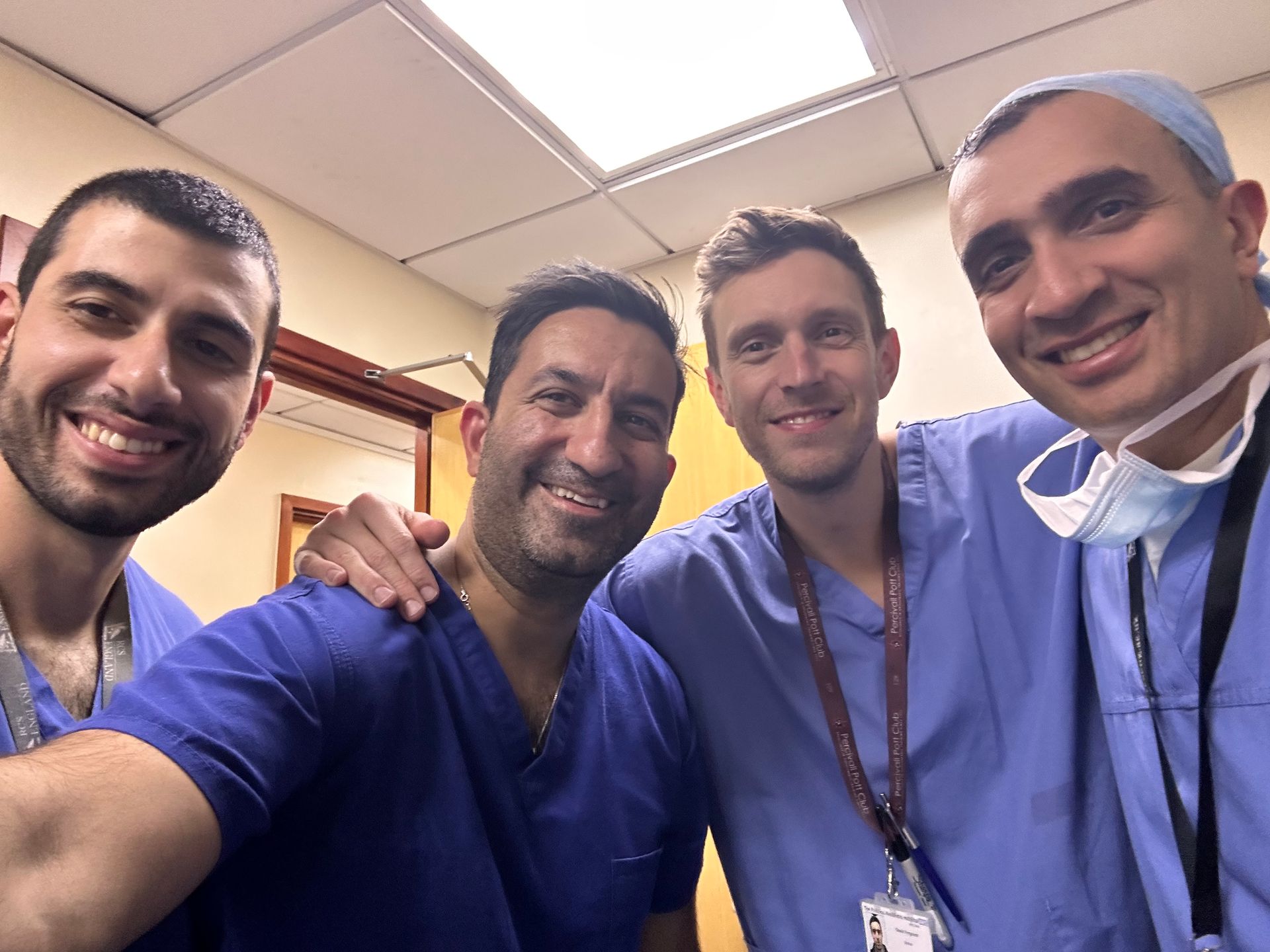
What motivated you to start 'Lets Talk Dr', and how did you go about establishing it?
I've had a long-standing interest in teaching, even at school when I used to teach students from home and kept this up throughout my career as an undergraduate, lecturer, postgraduate anatomy demonstrator and in writing book chapters and teaching on multiple courses. I always felt that as doctors we sometimes struggle with oral examinations and the ability to articulate and also with some of the resources available which I felt myself as a trainee were often outdated or difficult to digest. From doing television interviews or even musical auditions, I realised that many of the principles I had learned through trial and error and making countless mistakes were applicable to an oral exam or interview and thus wanted to teach doctors to talk- hence the title 'Let's Talk Dr'!
I initially started Let's Talk Dr as a few scribbles on the back of an exercise pad whilst waiting for patients to arrive in theatre in the canteen at the Royal London Hospital. Above all, I had a vision and wanted to enact it at all costs in spite of any naysayers or lack of funds. I think that pig-headed stubbornness and belief in my idea led me to sell my house and use the profits to start the business. I never wanted to take any loans from any family members in case- for want of a better term - it all went belly up! That way at least I could take responsibility for it as my expensive mistake. Luckily, it went from strength to strength and I haven't looked back.
Can you talk about how personal adversities you've faced have built your resilience and helped you grow your business?
In 2020 whilst as a locum consultant and vying for a permanent job and having launched let's Talk Dr nationally and set up another offshoot for A level biology students, Let's Talk Biology, I felt that I was at my peak and had the world at my oyster. Unfortunately, during a teaching session online I felt a sudden severe pain and a few minutes later was on the floor and admitted to hospital with life threatening necrotising gallstone pancreatitis. From feeling on top of the world as if I could do no wrong, I was in two organ failure, saying goodbye to my family and close to death. My goals had gone from setting up international courses and becoming a consultant in my dream specialty to being able to eat, go to the toilet or walk to the end of the corridor. I was shattered, my body was broken, mentally I was broken and I had no control over my destiny which I found so disempowering and there were times I wanted it all to end.
I went through some very dark times particularly with no visitors during COVID and 11 life saving operations and it was undoubtedly the support of a close family, friends and colleagues plus the technological marvel of facetime that pulled me through! I always remember saying to the doctors looking after me that I felt like Batman in 'the dark Knight Rises' when his back is broken and he is lying in a deep hole. I couldn't see a way out but if i could just have a chink of light or good news - I would pull myself out.
As difficult as this story is to share, it definitely helped me for the better- it made me more empathetic and understanding- both as a surgeon, teacher and human being and above all taught me the importance of perspective - taking each day as it comes and appreciating every day of life and taking it as it comes. Rather than mourning some of the things I can no longer do or have, I am so appreciative of everything that I do have. I always used to joke that if I could give anyone in their middle age a life-threatening disease but they survive - it is the best therapy you can ever have. It also taught me the importance of faith, support and self belief and I have taken these lessons on not only at work but in all my business ventures.
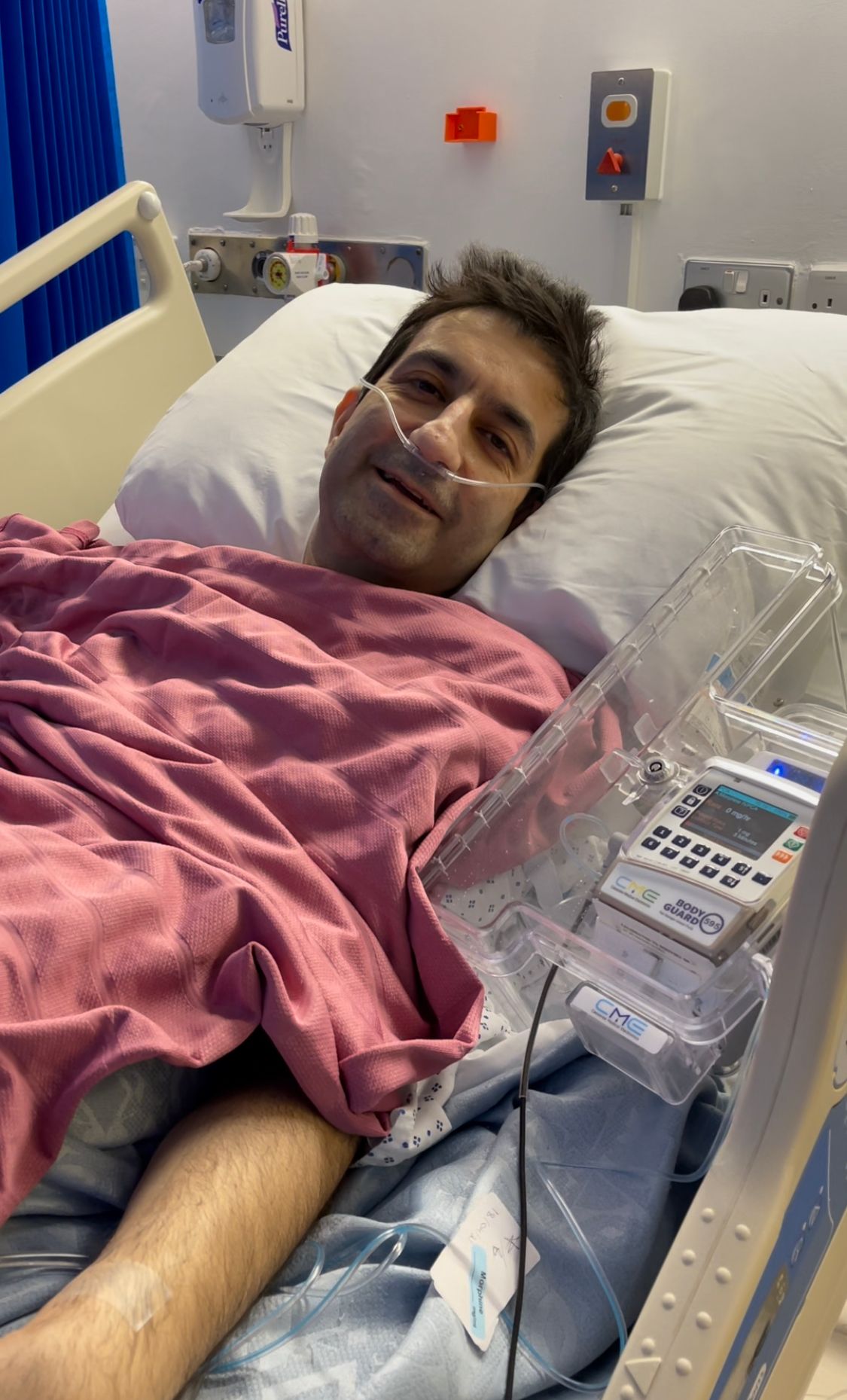
Can you share a success story of a trainee who has benefited from your training service?
Teaching has been a real blessing as I have had the privilege of meeting students from different deaneries, countries, training and non-training - each with a different story and different challenges and they challenge me every day. One of my greatest success stories was a wonderful doctor diagnosed later in life with dyslexia who struggled greatly with the FRCS exam and it impacted not only on his career but his self-belief and mental state. Getting him through the exam and seeing him flourish as a consultant has given me such immense joy and also taught me a valuable lesson about having diverse resources for all cohorts of learners and being adaptable in my teaching methods and not having a simple- one size fits all.
What unique aspects does your training service offer that differentiate it from other orthopaedic training programmes?
It is completely bespoke and individualised to each student. As well as offering mentorship and ongoing support that no other courses or programmes offer, I use revolutionary bespoke resources including videos which simplify even the most complex of concepts. Perhaps the biggest USP is the focus on technique- an undervalued concept in training but one that is so dear to my heart. When I see the impact it has had on my trainees and their decision making not only in the exam but in day to day practice, it fills me with immense satisfaction.
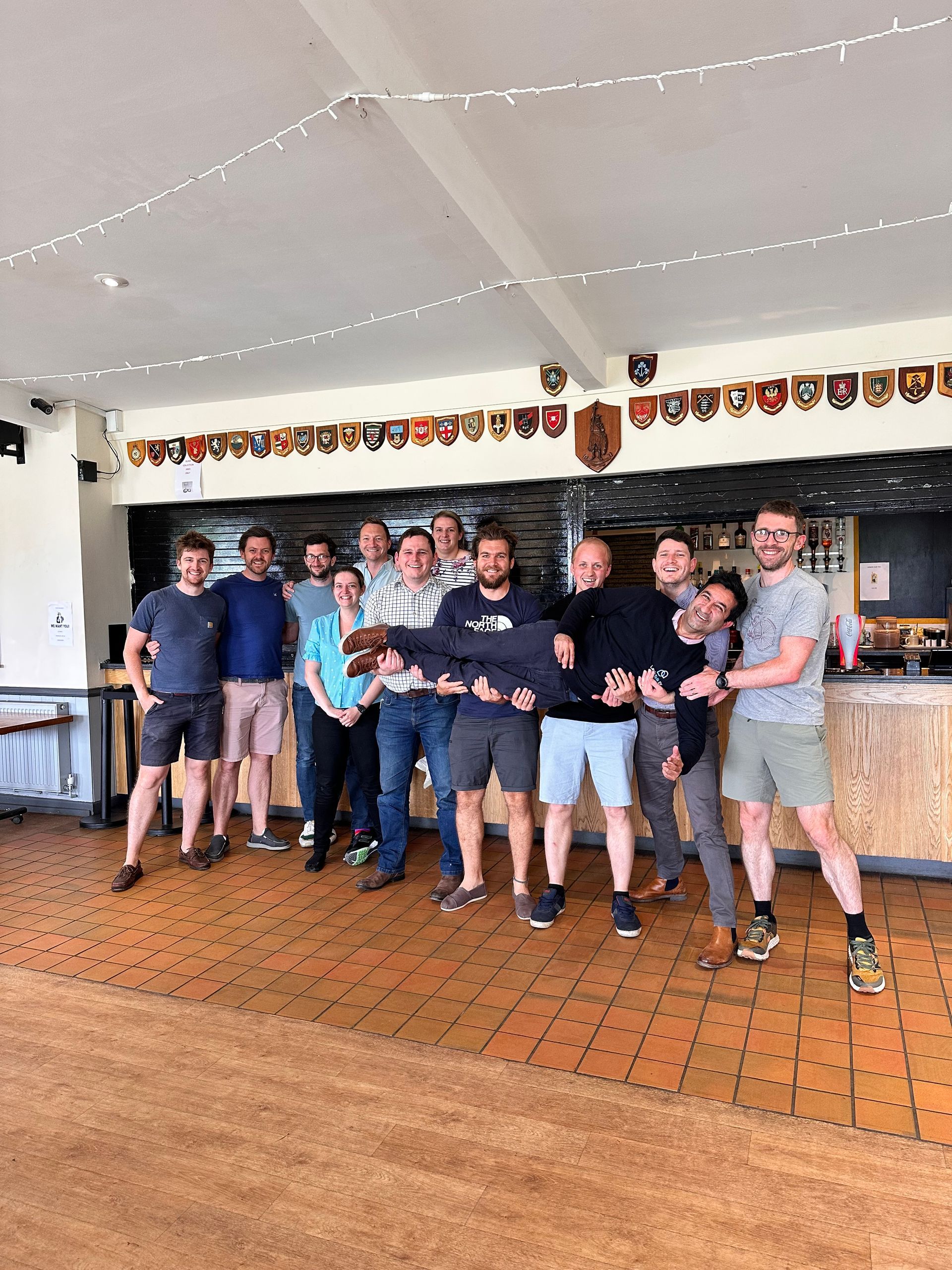
How do you envision the future of orthopaedic surgery training evolving, and what role do you see Let's Talk Dr playing in that future?
I think orthopaedics is one of those specialties that is so exciting because it continues to evolve and embrace change. As treatments and patient demands evolve, so must training. COVID has opened the door to a. number of opportunities including hybrid courses and meetings and i run several of these. Having trained over a thousand registrars from deaneries all over the UK and Ireland and internationally, I believe that Let's Talk Dr in collaboration with others can play a leading role in bringing that change and evolving techniques in training and education to a global audience.
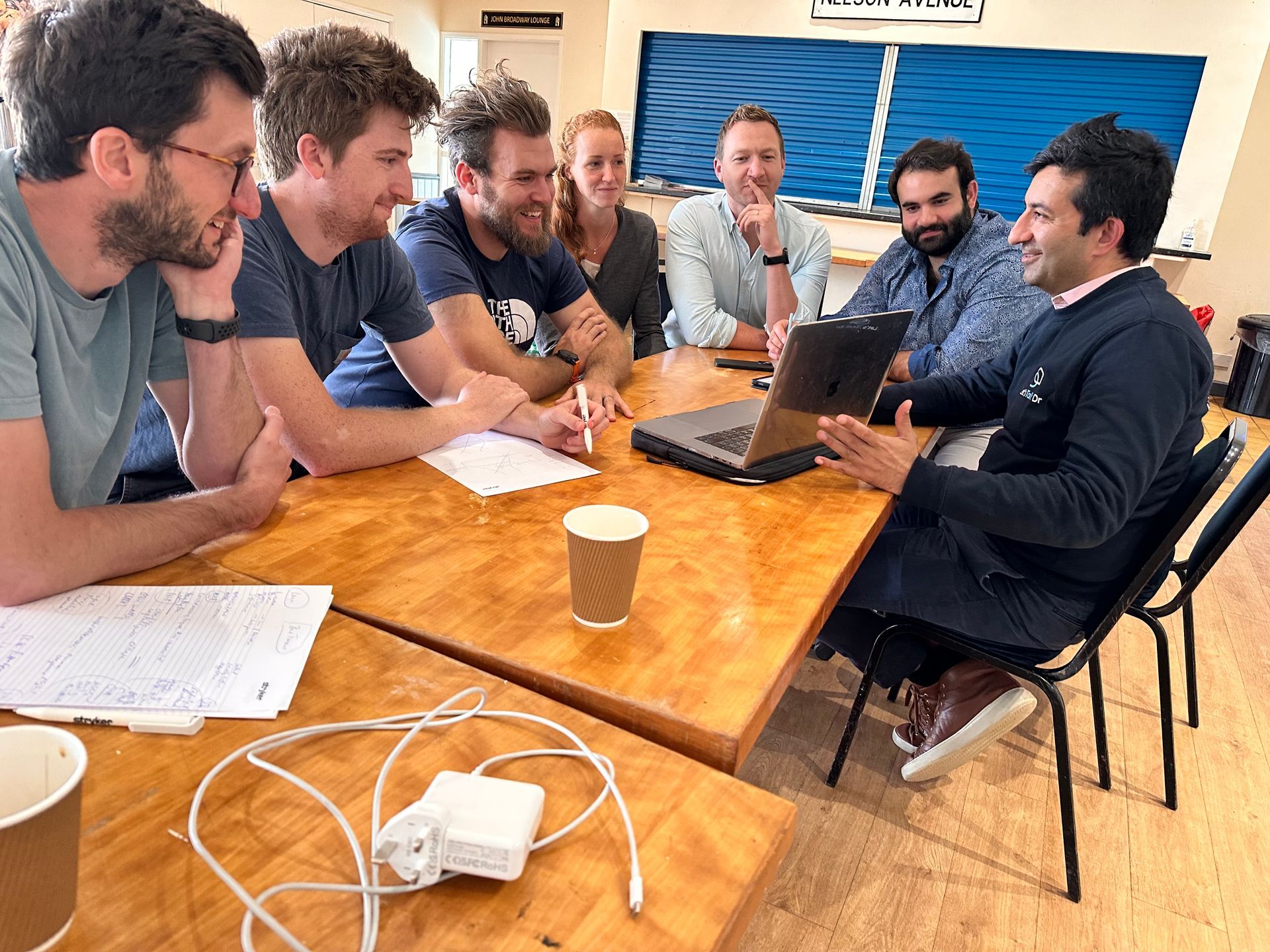
What challenges did you encounter while setting up and running Let's Talk Dr, and how did you address them?
Financially it was a big challenge as well as gaining credibility and support. I have managed to address this through hard work, desire and self-belief and have also had great support from family, friends, colleagues and sponsors and other educators who it has been so exciting to collaborate with.
What innovative approaches or new initiatives are you planning to introduce at Let's Talk Dr to keep it at the forefront of Medical education?
I'll keep some of those close to my chest but rest assured we will continue to push the bar. Already in the next year we have three international face to face courses that have been set up, have expanded the portfolio to MRCS, ST3 interview and consultant interview training (through our close partner MDI courses (www.mdicourses.co.uk) and have an exciting video series in collaboration with BOMSA (Let's Talk BOMSA) with medical students. I would love to embrace new technology in education and above all - enjoy every challenge. I believe with the combination of social media and technology - we are in a golden age of education - the future is bright and I can't wait to embrace it.
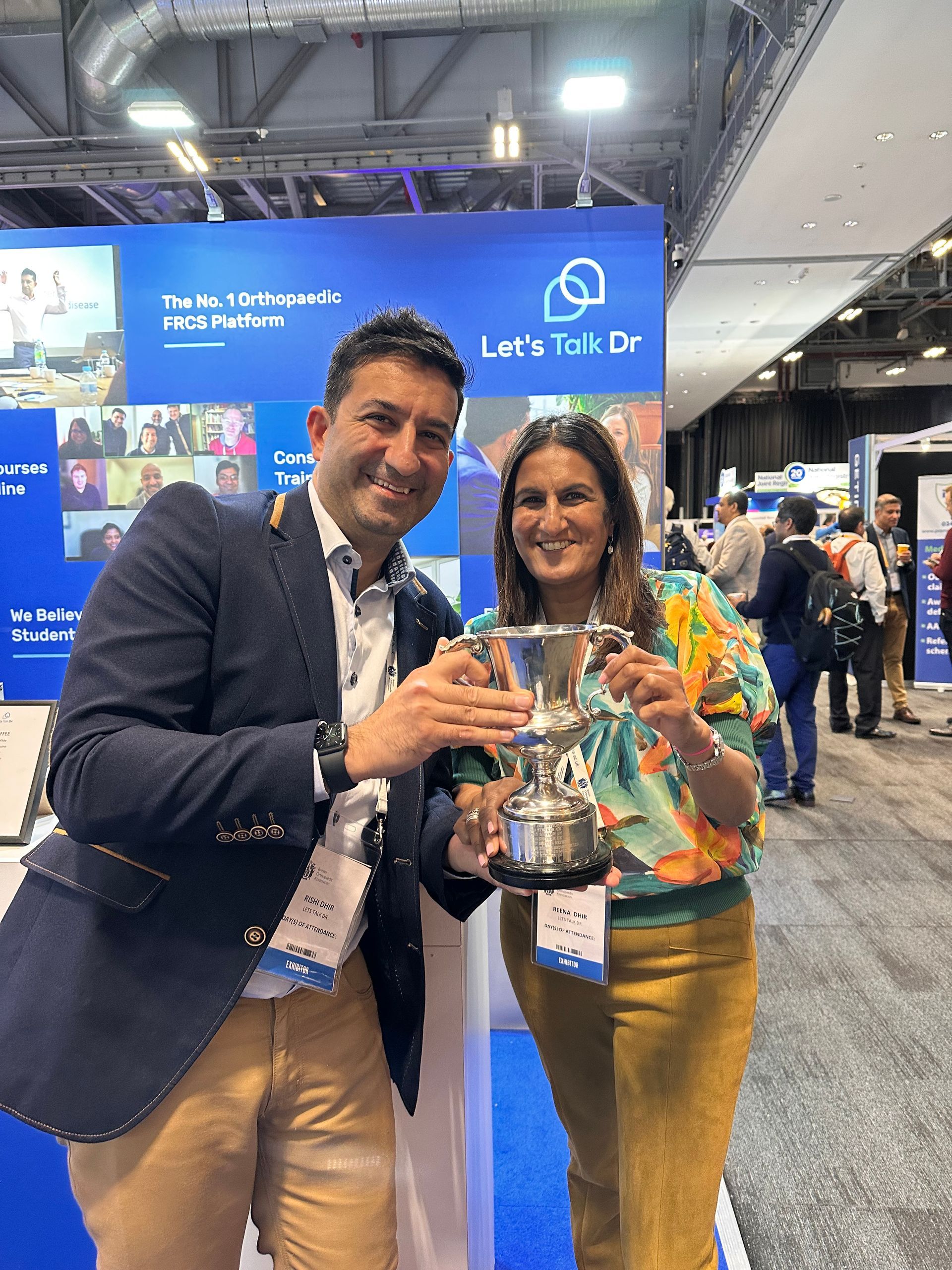
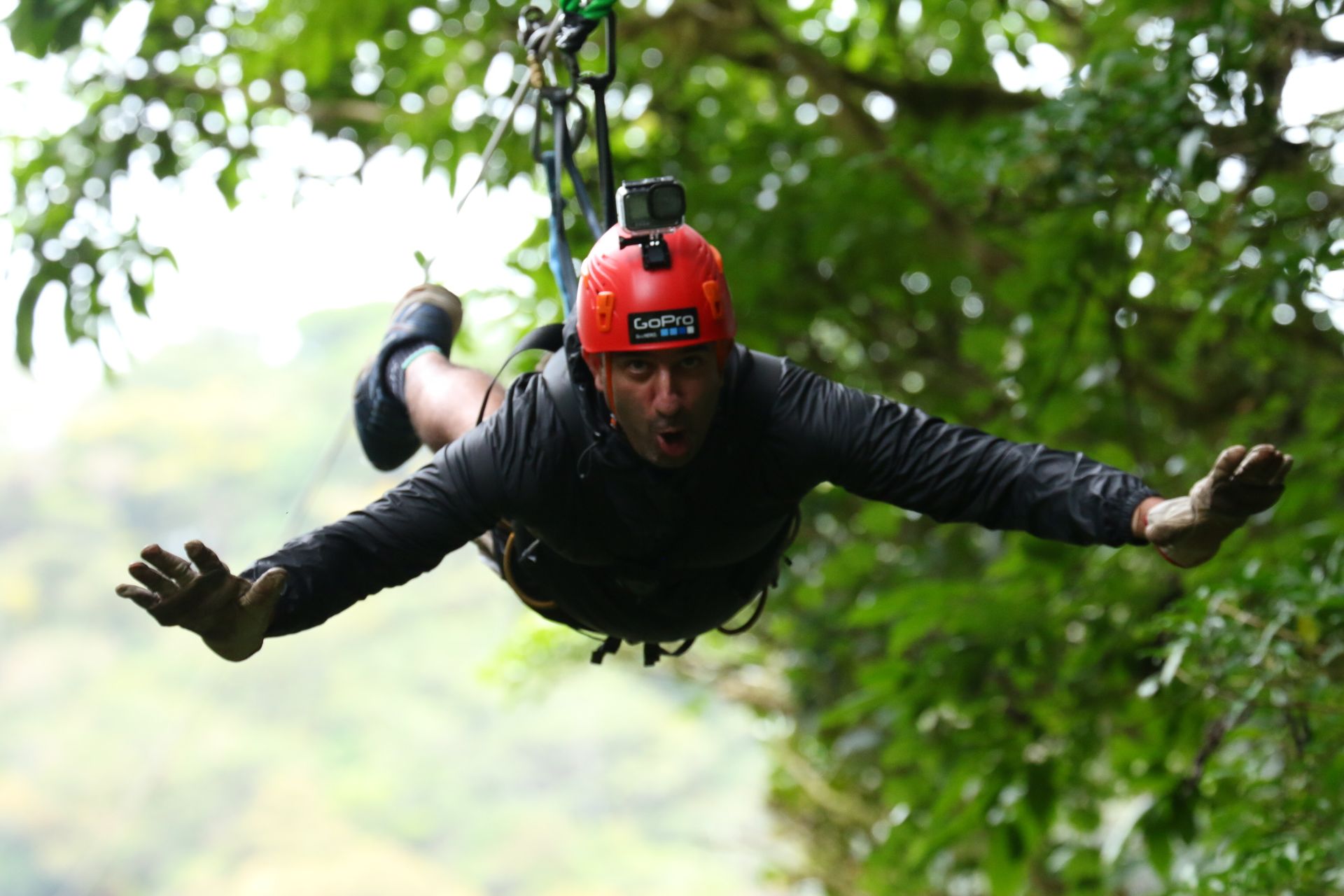
Dr. Rishi Dhir
Dr. Rishi Dhir is a consultant orthopaedic surgeon specialising in upper limb surgery at Princess Alexandra Hospital in Harlow. He completed his basic surgical training and higher orthopaedic training on the Royal London rotation at Whitechapel. After completing his training in October 2017, he joined Princess Alexandra Hospital.
Dr. Dhir has extensive experience and training in upper limb surgery. He underwent fellowships in shoulder, elbow, and hand surgery at renowned institutions such as Wrightington Hospital, Edinburgh, and Melbourne, Australia from 2017 to 2019. His expertise includes elective shoulder, elbow, and hand surgery, including arthroscopy and arthroplasty of the shoulder, soft tissue procedures of the elbow, and both soft tissue and bony procedures of the hand. He also has a keen interest in general trauma and sub-specialist upper limb trauma.
Apart from his clinical work, Dr. Dhir is passionate about education. He has significant experience in producing written and video resources and delivering courses. He is involved in teaching and mentoring students worldwide through his revolutionary international teaching platform called "Let's talk Dr” rated as the one of the top international educational orthopaedic platforms, training over a thousand students in the UK and Ireland, USA, Australia, South Africa, South East Asia and the Middle East with a 5* rating on Google. He has collaborated with other educators and continuously strives to enhance medical education. Recently, he obtained a Postgraduate Diploma (PGDIP) in medical education from Cambridge University. He also has a passion for research having won three international grants as an undergraduate and worked for the European Space Agency to launch the first ever student experiment in space in 2001-2004.
Dr. Rishi Dhir's dedication to providing specialised upper limb care, passion for education, and commitment to teaching make him a valuable asset to the field of orthopaedic surgery.
Read more about Dr. Dhir’s practice
here
We would like to thank Dr. Rishi Dhir for his time and insight into orthopaedic excellence.
Thank you to our sponsor:
JRI Orthopaedics
To download this issue of On The Podium, click below.

Sign up to On The Podium. The latest insights and inspiration from orthopaedic specialists around the globe sent straight to your inbox.
On The Podium
The newsletter brought to you by OrthoSpaceX
| Engage with Orthopaedic Leaders | Exclusive orthopaedic insight | |
| Stay Ahead in Orthopaedic Advancements | Uncover Surgical Innovations | |
| Empower Your Orthopaedic Knowledge | Unlock the Minds of Orthopaedic Specialists |

